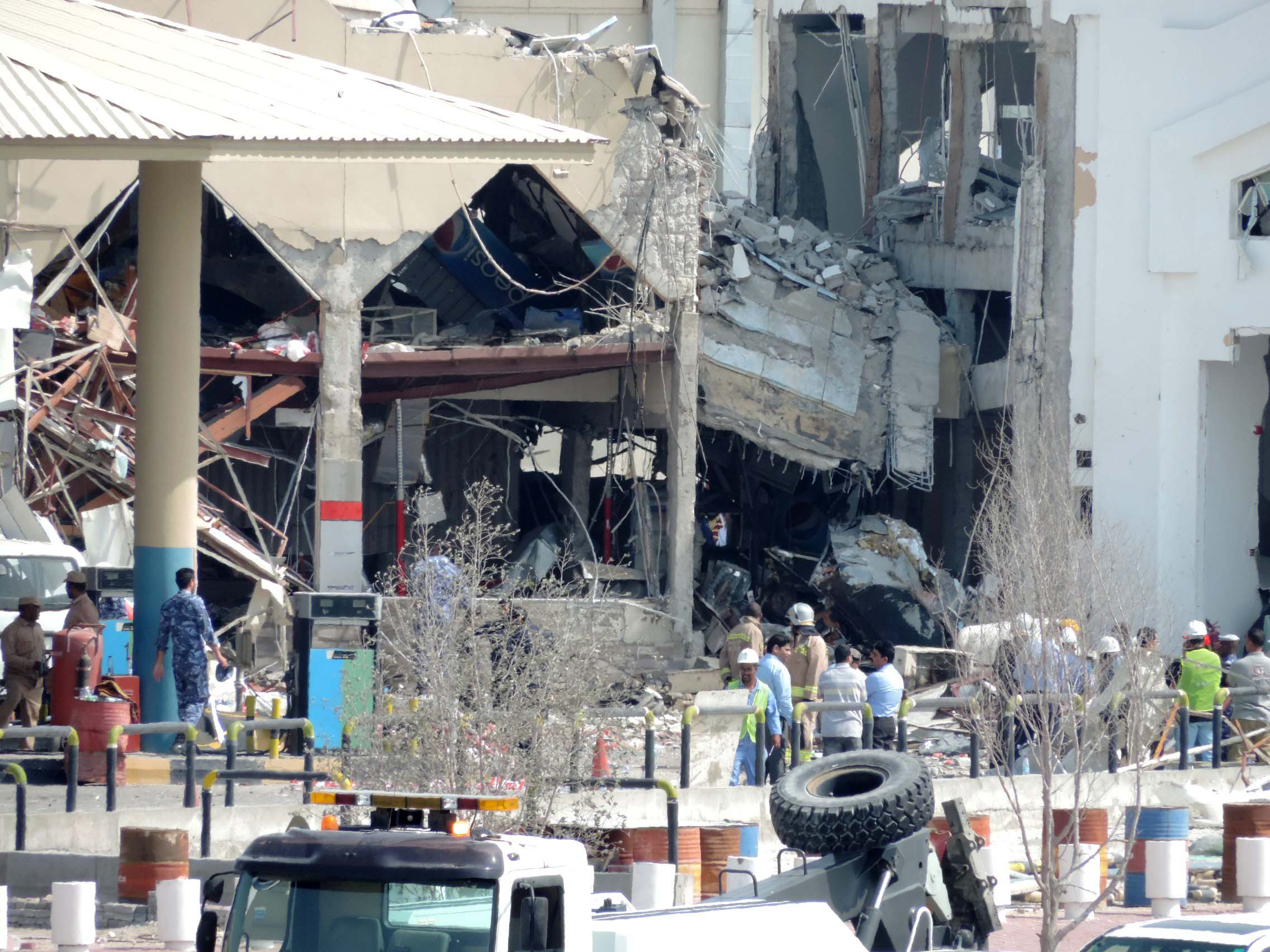
With reporting from Tory Scott and Ankita Menon
The cause of an explosion that killed 11 people and injured 35 others in Qatar last month was a pizza oven at a Turkish restaurant that was not properly turned off and leaking liquid petroleum gas (LPG), officials have said.
Speaking at a press conference this morning, the head of operations at Civil Defense and the director of the Ministry of Interior’s forensics department added that the gas was ignited by the electrical current from the restaurant’s refrigerator.
The oven’s LPG was likely left on when the eatery was closed around 2 or 3am the previous night. The eatery was closed at the time of the blast, around 10am.
Officials also said today that the idea that the blast was deliberate was almost immediately discounted, because no remnants of any potential explosives were found, among other factors.
Prosecutor’s case
On the day of the accident, government officials said the blast originated from a 1,000-liter LPG tank owned by Woqod and used by Istanbul Restaurant for cooking.
Woqod officials later said their tank was not responsible for the blast. Shortly thereafter, Qatar’s Attorney General Dr. Ali bin Fetais Al Marri issued a media publication ban on all investigation-related reports.
But yesterday, QNA announced that the investigation has concluded, and the ban was lifted, after Al Marri referred the case to criminal court.
In response to questions from reporters about who was referred to the court, officials declined to name the party involved, saying it was the prosecutor’s job.
When reached by phone today, restaurant owner Baris Yilmaz told Doha News he would be picking up papers from the prosecutor’s office today and could not comment for now.
Woqod declined to comment to Doha News today, saying officials needed to confer about the investigation results first.
Safety concerns
Last month’s accident has renewed concerns among residents about the safety of Qatar’s restaurants, particularly those situated in petrol stations.
In response to questions, Civil Defense’s head of operations said that officials have been cracking down on eateries who do not comply with Law No. 9 of 2012, which bans cooking with gas in petrol stations.
That law was passed shortly after the deadly Villaggio mall fire and gave the government more power to enforce safety standards in Qatar.
Over the past month, restaurants inside of petrol stations that have not switched to using electric stoves have been closed. Officials have also ordered Woqod to stop selling LPG Shafaf gas cylinders at their petrol stations.
Cooking with LPG
The canisters should still be available at more than 200 shops around Qatar, according to Woqod’s website.
However, it appears that the recent suspension of sales of Shafaf LPG gas cylinders at Woqod petrol stations is having a knock-on effect on residential customers, some of whom are struggling to find refills from other sources.
In speaking to several of the shops who stock the canisters, about half told Doha News they had some available, while others said they did not know when they’d receive another delivery.
Woqod’s gas delivery team told Doha News that the current shortage is being caused by a run on existing supplies, as Shafaf users who normally buy from Woqod petrol stations search for new outlets.
However, the team added that deliveries are continuing to go out, and dwindling supplies are being replenished. Customers who are running short of gas are advised to call nearby outlets in advance to check stock levels, or call Woqod on 40217777 for advice.
Meanwhile, at the press conference, when asked about the safety of LPG for home cooking, officials said residents should operate the canisters responsibly, adding that electric stoves are preferable.
They urged anyone who sees anything unsafe at a restaurant or a petrol station to report the information to Civil Defense or the Ministry of Interior on Twitter.
Thoughts?







